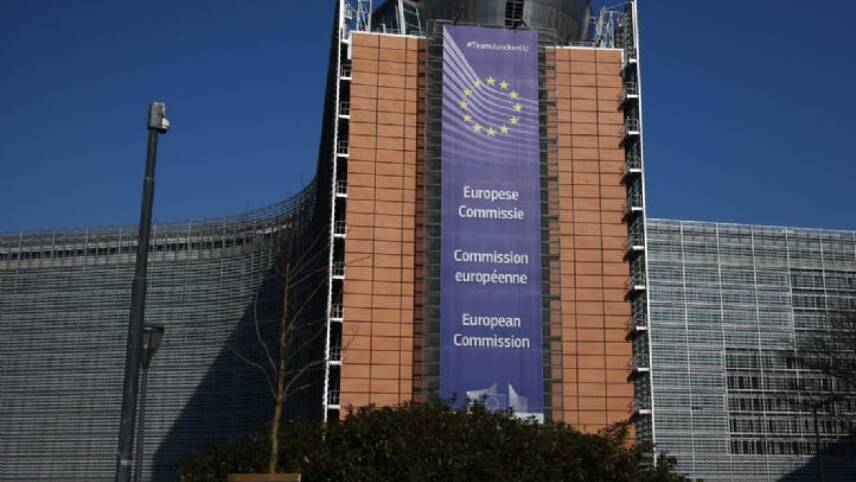Register for free and continue reading
Join our growing army of changemakers and get unlimited access to our premium content

Common rules on taxing carbon produced by energy date back to 2003
EU member states should grasp the nettle and allow taxation of environmental issues to be decided by majority vote, according to the European Commission, which has made a fresh push to inject “decisive action” into how Brussels combats climate change.
Under current procedures, fiscal policy requires a unanimous decision from the 28 member states and numerous initiatives have often fallen by the wayside thanks to just one belligerent country not being on board.
But since late 2017, the Commission has been pushing them to give up their sacred cow, particularly in certain areas of foreign policy and, more recently, environmental matters.
In a new communication obtained by EURACTIV, the Commission reiterates that fundamental rules do not have to be changed and calls on EU leaders to use “the obvious route” offered by the Lisbon Treaty to change the way they do business in the future.
The 2007 treaty, which governs the functioning of the EU, already includes so-called passerelle clauses that can change the agreement’s requirements without the need for full-blown treaty change.
Activating a passerelle clause to remove unanimity would, perhaps ironically, require a unanimous decision in the Council, as well as approval from the European Parliament.
A recent study by the Commission’s in-house think tank, the European Political Strategy Centre, concluded that scrapping vetoes changes the dynamics of how laws are negotiated.
“The mere possibility of voting encourages a shift in behaviours, compelling member states to join in negotiations and achieve a compromise,” the study insists. It concludes that in areas like trade policy, the results have become “more effective”.
Much-needed change?
The Commission’s communication explains that “energy taxation has an important role to play. Taxes and levies represent a significant share of energy prices and their share has been growing in key products such as electricity in some countries.”
EU climate Commissioner Miguel Arias Cañete told EURACTIV in written comments that “today’s energy taxation framework, which is 16 years old, is clearly outdated” and that the Parliament should be involved in the decision-making process in the future.
Cañete also pointed out that building the Energy Union was possible because issues like renewable energy and security of supply did not need unanimity.
Common rules on energy taxation date back to 2003 and a 2011 attempt to amend the legislation and add a CO2 tax was ultimately felled by the unanimity requirement. An evaluation is currently ongoing into whether to try to reopen the debate again.
High-ranking Commission officials have been pushing for a carbon tax since the early 1990s and one EU source said that although some of the current crop of Commissioners have been against it, progress has been made.
The communication adds that specific tax exemptions or reductions in areas like aviation, maritime and road haulage “substantially weaken incentives for investing in more energy efficient capital stock and production processes”.
Aviation fuel, for example, enjoys tax-free status in the EU and countries have started to think about how to cut air travel’s increasing impact on the environment.
France, Belgium and the Netherlands all support some form of taxation on aviation, be it a kerosene tax or charging VAT on passenger tickets. They have suggested bilateral agreements as a way of implementing it if the road to a pan-EU measure is blocked.
Atom-smashing
The Commission has also called on EU leaders to “engage actively” in a rethink of the 62-year-old Euratom Treaty, which governs nuclear energy, decommissioning, safety and development.
Established in 1957, it predates even the European Parliament and has not been fundamentally revised since. That is why the Parliament, as well as national assemblies, are not involved in the decision-making process.
The treaty is only two years younger than Commission President Jean-Claude Juncker and the same age as Brussels landmark the Atomium. As one EU official pointed out, the iconic building has been refurbished a few times since it was built, unlike Euratom.
Although the European Economic and Social Committee (EESC), founded at the same time the treaty was signed, does have oversight, the Commission wants to “improve the democratic legitimacy of decision-making under Euratom”.
When the Lisbon Treaty was signed, Germany, Ireland, Hungary, Austria and Sweden all signed a declaration saying that the nuclear agreement should be brought up to date for that very reason.
The EU executive will now set up an expert group to look into tweaking Euratom but has stressed that it is a long-term project, which will only start to yield results after 2025.
One EU source told EURACTIV that the Commission is not treating atomic power as an ideological issue and considers it part and parcel of Europe’s energy mix. They also added that pushback from the nuclear lobby is to be expected and is part of the reason why no update happened since 1957.
The tax and Euratom issues were included in the same communication by the Commission because they are inherently linked. Nuclear power does not emit carbon so countries that rely heavily on it, like France, are among the first to champion the need for a carbon tax.
The Commission’s draft climate plan for 2050 includes nuclear power in its scenarios and member states are expected to adopt their preferred option by the end of the year.
Sam Morgan, EurActiv.com
This article first appeared on EurActiv.com, an edie content partner


Please login or Register to leave a comment.